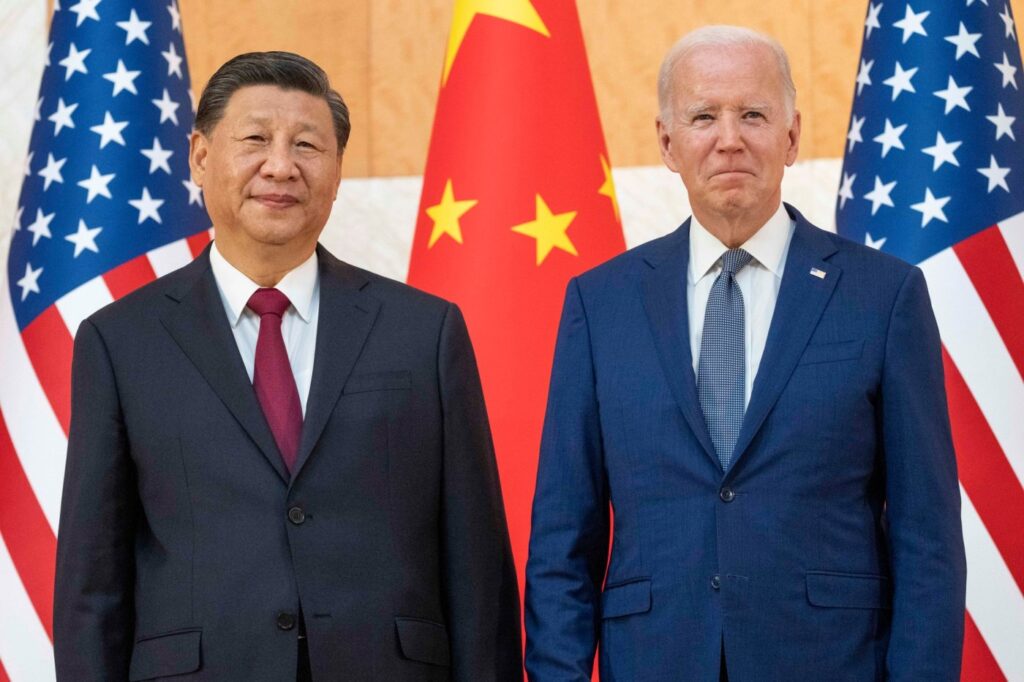
President Biden’s first in-person meeting with China’s Xi Jinping at the G-20 summit in Indonesia this November featured a welcomed shift in tone from both leaders. After months of deepening friction between Beijing and Washington, the two presidents emphasized mutual engagement to confront shared global challenges.
Although they have held five calls since Biden became president, these are no substitute for direct dialogue. The Biden administration should build on this thaw in U.S.-China relations by increasing contact with China across all levels of government to find new opportunities for tackling shared problems.
Over the last several years, the Sino-American relationship has noticeably deteriorated. Differences over trade during the Trump presidency emerged as a flashpoint, but since Biden’s inauguration in January 2021, the hostility has increased. Senior American officials have repeatedly labeled China as the greatest challenger to the U.S.-led international order, a distinction solidified by the Biden administration’s 2022 National Security Strategy. Most critically, tensions have grown over the future of Taiwan with Beijing and Washington each ramping up the heated rhetoric, raising the specter of armed confrontation.
It is this context that makes Biden and Xi’s warmer attitude after their summit so striking. While few expect a breakthrough on the issues plaguing the bilateral relationship, their language was an important sign both leaders view unrestricted rivalry as a likely disaster that could lead to potential war.
This tonal shift means there is a valuable opening for China and the United States to take significant steps toward improving ties. Expanding and regularizing face-to-face contact is a beneficial place to start.
As was the case during the Cold War, Washington and Beijing need to work together and develop long-term agreements to address challenges on core issues, such as pandemic mitigation, climate change, and nuclear nonproliferation. The basics of bargaining theory state that there are two conditions for a stable deal: that both parties believe the other isn’t lying and the other side won’t cheat. A necessary component for satisfying both conditions is to gain greater knowledge of one another, and the only way to do that is through direct communication.
Both countries should continue to increase contact in both degree and range because meaningful dialogue increases understanding of each other’s capabilities, interests, and resolve.
To develop a shared grasp of the issues and how each country can contribute, the Biden administration should push for communication across all spheres and levels of American and Chinese society. At the federal level, the White House should consider holding a state dinner with Xi and help coordinate governors and mayors to do the same with their counterparts in Chinese provinces and cities. It should also promote Track II diplomacy by collaborating with leaders in the private sector and NGOs to host forums with their Chinese equivalents.
The point of these discussions isn’t to find a magic bullet, but to create the structural conditions for future cooperation.
Opponents will say talking more is a waste of time and that the differences between China and America are ultimately irreconcilable, that neither country can trust the other because of the inherent threat they pose. They would also argue that the issues highlighted above are peripheral to great power competition.
This is a narrow conception of security though that misses why regimes care about security in the first place: to ensure the safety of their citizens. It’s been a pandemic that has resulted in millions of deaths across the world and a climate crisis that will continue to displace countless more and create further destabilization. It’s regional conflicts like the one in Syria that have upended people’s livelihoods. Both countries have a vested interest in mitigating the harms from these threats arguably as much as they do in stopping great power war. And the only way for Washington to do that is through active cooperation with Beijing.
Related Articles
California is still a ‘judicial hellhole’
Beyond the political theatrics, Kevin McCarthy will be the next House Speaker
The Golden State needs a course correction in the new year
Taxpayers’ list of the naughty and nice
Christmas wish list: school choice, CEQA reform and decriminalizing victimless vices
This strategy has worked before. When Mikhail Gorbachev came to power in the Soviet Union in 1985, President Ronald Reagan appreciated there was a new type of leader in Moscow. After years of hawkish rhetoric, Reagan shifted toward open diplomacy when he found a negotiating partner who shared his desire for a nuclear-free world. Through sustained diplomatic contact at all levels of government and in-person summits between Reagan and Gorbachev, Washington and Moscow were eventually able to abolish an entire class of nuclear weapons and lay the foundations for the end of the Cold War.
The White House shouldn’t waste the opportunity presented by the G-20. More conversations of both higher importance and frequency will be necessary to tackle shared security threats. Washington should begin dialogue with China at all levels of government to start facilitating the communication needed to accomplish this.
Grant Golub and Yameen Huq are Contributing Fellows at Defense Priorities.
